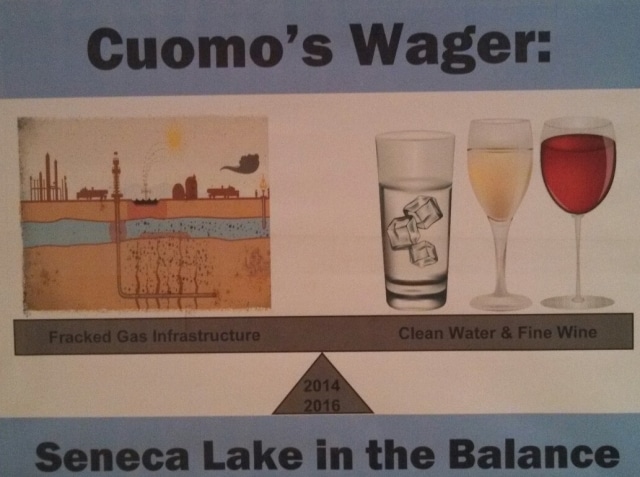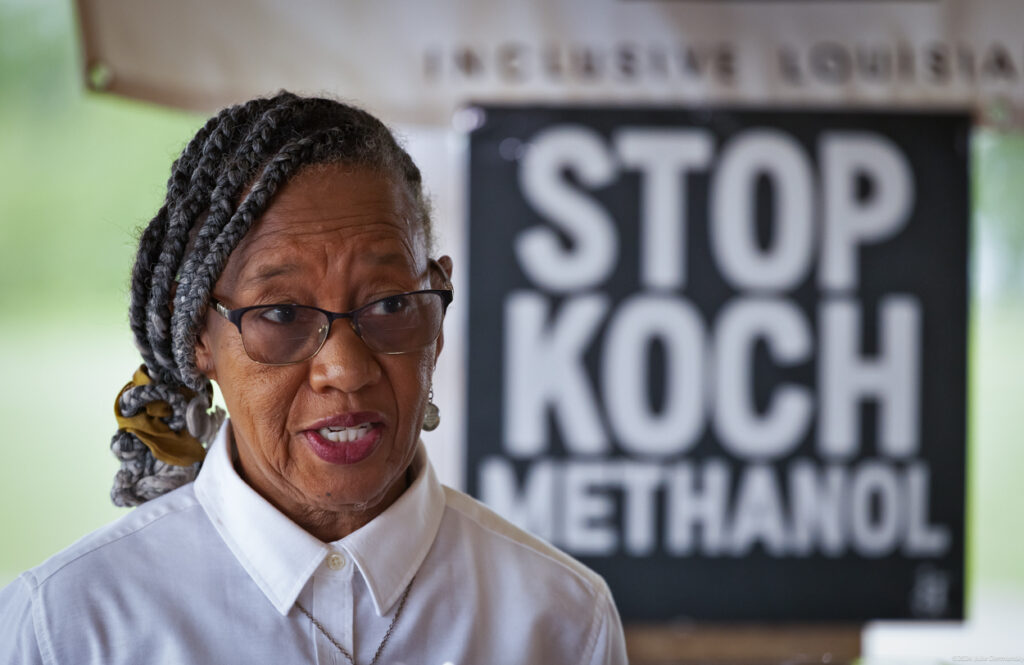Ken Stanton’s 400-cow dairy farm lies in the path of the proposed Constitution Pipeline, which would carry fracked natural gas from Pennsylvania to New York.
Three generations of Stanton’s family spoke in opposition to the pipeline during a packed public comment session at a hearing at Cobleskill-Richmondville high school on March 31.
“The pipeline would cut through my land. With eminent domain, there’s nothing I can do. It doesn’t feel like America anymore,” Stanton told the Daily Gazette.
It’s people like Stanton who stand to lose in the face of new fossil fuel developments, despite the job-creation claims of industry.
Until recently, new projects were justified in the name of American energy independence, but with the new push to lift the Jones act to allow for crude oil exports and the big PR effort to ramp up liquid petroleum gas (LPG) exports, the new spin is job creation.
The American Petroleum Institute has abandoned the energy independence approach and gone with the new argument about jobs — and the media was happy to broadcast the message. From CNBC:
By lifting restrictions on crude oil exports, the U.S. economy could generate more than a quarter of a million jobs and save consumers billions in energy costs, the American Petroleum Institute said Monday.
In addition to the promise of jobs, the institute is claiming exporting more crude oil will lower prices for American consumers. This is a bold claim given that this past year propane prices in the U.S. hit record prices, coinciding with an exports increasing by 75 percent.
In March, Senator Mary Landrieu (D-LA), held a hearing on increasing liquid natural gas exports, touting the job creation benefits. The hearing was called “Importing Energy, Exporting Jobs — Can it be reversed?”
The Wall Street Journal even recently ran an opinion piece saying “New York’s fracking ban means more inequality.”
If the Wall Street Journal is arguing for income equality, you can be pretty sure there is a PR effort involved.
In New York the jobs argument is being waged on several fronts. There has been an endless supply of articles and advertisements touting the job creation that fracking will provide even though studies show job growth from fracking in other states has been “greatly exaggerated.”
Farmers like Stanton find themselves in the middle of these heated jobs debates. Last week, several hearings about the proposed Constitution Pipeline were held in New York communities by the Federal Energy Regulatory Commission (FERC). The meetings were well attended by union members who were bussed in to lend their support to the pipeline. They wore matching shirts with the phrase “Our jobs are on the line” printed on the back.
Attendees at the meetings reported that the union members were trying hard to intimidate speakers at the events. Based on comments submitted to FERC after the events, attendees reported the following:
Three busloads of boisterous construction workers wearing bright orange shirts, with “Constitution Pipeline” printed on the sleeves, took over the proceedings. They were aggressive and rude; there was loud booing and cat calls; yelling “Time” and shouting-down those at the speaker’s podium before FERC officials had actually announced, “Time.”
A videographer at the event recorded a union member telling the videographer to turn his camera off and covered the lens with his hand. The confrontation concluded with the union member saying, “I’ve got news for you, you better hope I don’t follow you out of here.”
In New York’s Finger Lakes region, Crestwood is proposing a project that would create a major storage and distribution center for liquid propane gas in salt mines on the shore of Seneca Lake. For the past three years, opposition to this project has been led by the group Gas Free Seneca, which has based its opposition on environmental and safety issues, but also the threat it poses to the local economy and jobs.
Gas Free Seneca has a coalition of more than 200 local small businesses who oppose the Crestwood project. Many of these businesses are directly involved in the local wine-making industry and the tourism business it supports.
World-renowned winemaker Paul Hobbs, called “The Steve Jobs of Wine” by Fortune Magazine, recently purchased 60 acres on the shore of Seneca Lake to develop into a vineyard and winery. In a letter Hobbs wrote to New York Governor Andrew Cuomo asking him not to approve the gas storage facility, he states, “The Finger Lakes and specifically the area near Watkins Glen, is unquestionably one of the premier places in the world for high-quality wine growing.”
And this all means jobs for New Yorkers:
“A new report on the grape and wine industry released this month based on 2012 data shows that the industry now contributes $4.8 billion to the New York state economy every year. It also found that the industry supports the equivalent of 25,000 full-time jobs, pays over $408 million in taxes, and generates over 5.2 million wine-related tourism visits.”
Cuomo just held his second summit on the beer, wine, spirits and cider industry in the state, where he acknowledged the success of the industry and its potential for growth.
“Your industry, we believed in from the get-go. It had tremendous potential for growth. It is a magnificent industry, not only in terms of potential, but also it complements the rest of the state economy overall.”
At a forum organized by Gas Free Seneca in Watkins Glen last month business owners and local elected officials expressed their opposition to the gas storage project because of the threat it posed to a thriving sustainable local economy they’ve worked hard to build.
Will Ouweleen of Eagle Cresk Vineyard summed it up by stating, “One accident here could destroy 150 years of careful brand building.”
Much as it did in the Gulf when the BP Horizon oil spill wiped out the oyster industry and destroyed the local economies that depended on it. As oysterman Bryon Encalade told CNN in 2013:
“This economy is totally gone in my community. There is no economy. The two construction jobs that are going on — the prison and the school — if it weren’t for those, the grocery store would be closing.”
Last week, when Crestwood’s CEO Robert Phillips visited the site of the proposed facility in Watkins Glen he told The Odessa File that his company is, “working with trade unions to get the message out. We have to ratchet up our voice as well.”
In New York, as in many states across the country, existing long-term jobs are being put at risk by the oil and gas industry’s expansion and promise of temporary jobs — all so that more oil and gas can be exported to other countries, like China. As winemaker Ouweleen stated, “Bluntly put, this is just one more out-of-state corporate takeover of our American dream. And we will not abide.”
Subscribe to our newsletter
Stay up to date with DeSmog news and alerts






